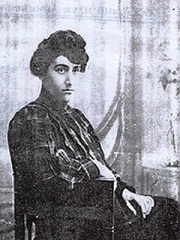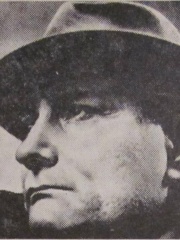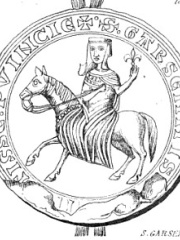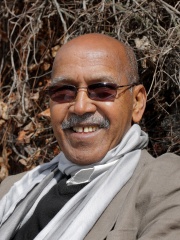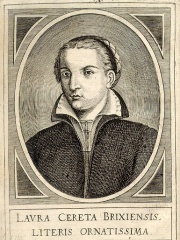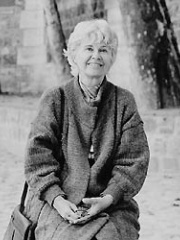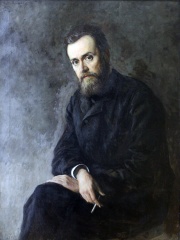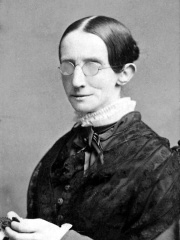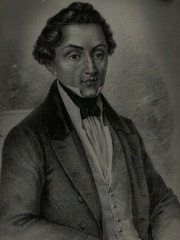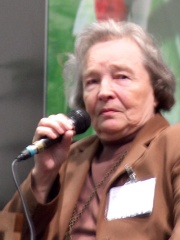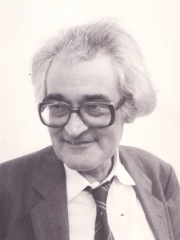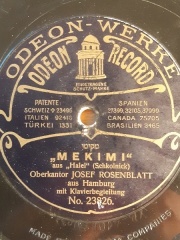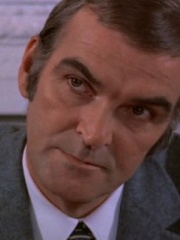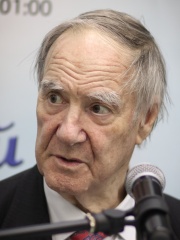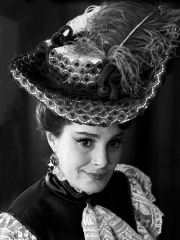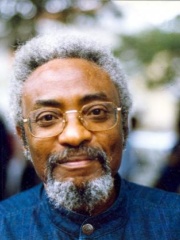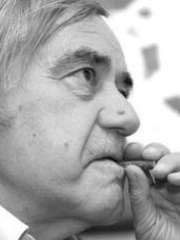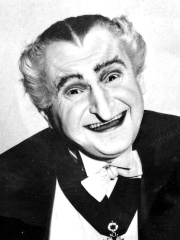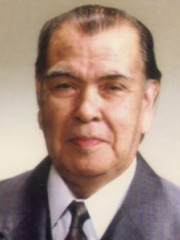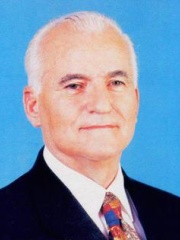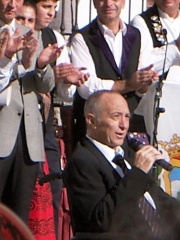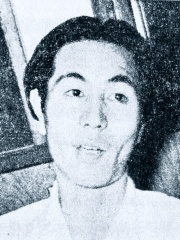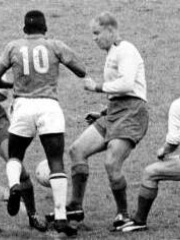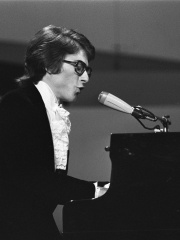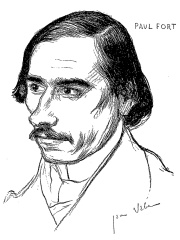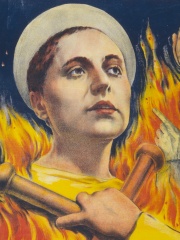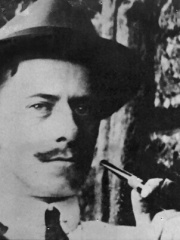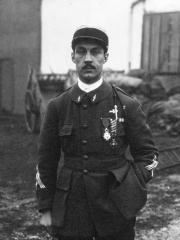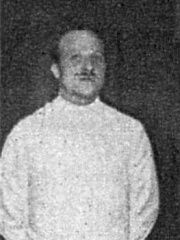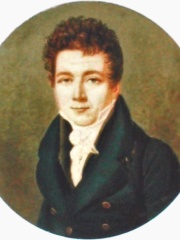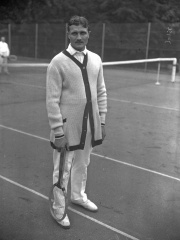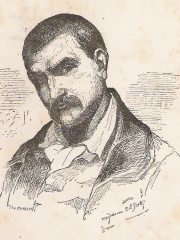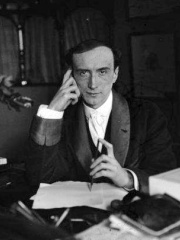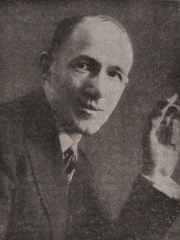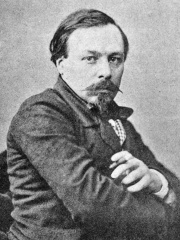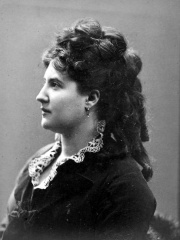WRITER
André Schwarz-Bart
1928 - 2006
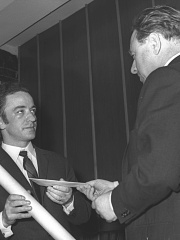
 André Schwarz-Bart
André Schwarz-Bart
André Schwarz-Bart (May 23, 1928 – September 30, 2006) was a French novelist of Polish-Jewish ancestry. He was awarded the Prix Goncourt for his debut novel in 1959, and the 1967 Jerusalem Prize. Read more on Wikipedia
His biography is available in 20 different languages on Wikipedia (up from 18 in 2024). André Schwarz-Bart is the 4,075th most popular writer (down from 4,058th in 2024), the 3,970th most popular biography from France (down from 3,933rd in 2019) and the 505th most popular French Writer.
Memorability Metrics
Page views of André Schwarz-Bart by language
Among WRITERS
Among writers, André Schwarz-Bart ranks 4,075 out of 7,302. Before him are Shushanik Kurghinian, Eric Frank Russell, Hovhannes Shiraz, Garsenda, Countess of Forcalquier, Nuruddin Farah, and Vira Vovk. After him are Laura Cereta, Anne Hébert, Gleb Uspensky, Laura Bridgman, Yuriy Venelin, and Léo Malet.
Most Popular Writers in Wikipedia
Go to all RankingsShushanik Kurghinian
1876 - 1927
HPI: 57.83
Rank: 4,069
Eric Frank Russell
1905 - 1978
HPI: 57.83
Rank: 4,070
Hovhannes Shiraz
1914 - 1984
HPI: 57.83
Rank: 4,071
Garsenda, Countess of Forcalquier
1170 - 1242
HPI: 57.82
Rank: 4,072
Nuruddin Farah
1945 - Present
HPI: 57.82
Rank: 4,073
Vira Vovk
1926 - 2022
HPI: 57.82
Rank: 4,074
André Schwarz-Bart
1928 - 2006
HPI: 57.82
Rank: 4,075
Laura Cereta
1469 - 1499
HPI: 57.82
Rank: 4,076
Anne Hébert
1916 - 2000
HPI: 57.82
Rank: 4,077
Gleb Uspensky
1843 - 1902
HPI: 57.81
Rank: 4,078
Laura Bridgman
1829 - 1889
HPI: 57.81
Rank: 4,079
Yuriy Venelin
1802 - 1839
HPI: 57.81
Rank: 4,080
Léo Malet
1909 - 1996
HPI: 57.81
Rank: 4,081
Contemporaries
Among people born in 1928, André Schwarz-Bart ranks 340. Before him are Eeva Kilpi, Carl Dahlhaus, Bob Crane, Frank Rosenblatt, Yoshiro Nakamatsu, and Stanley Baker. After him are Sergey Kapitsa, Kiyoshi Atsumi, Elina Bystritskaya, Jaime Sin, Mário Pinto de Andrade, and Dušan Džamonja. Among people deceased in 2006, André Schwarz-Bart ranks 214. Before him are Al Lewis, Shigeru Kayano, Fernando Romeo Lucas García, Betty Curtis, Desmond Dekker, and Mirko Marjanović. After him are Francisco Fernández Ochoa, Ted Schroeder, Akira Ifukube, Gert Fredriksson, Kazimierz Górski, and Sven Axbom.
Others Born in 1928
Go to all RankingsEeva Kilpi
WRITER
1928 - Present
HPI: 57.91
Rank: 334
Carl Dahlhaus
PHILOSOPHER
1928 - 1989
HPI: 57.88
Rank: 335
Bob Crane
ACTOR
1928 - 1978
HPI: 57.87
Rank: 336
Frank Rosenblatt
PSYCHOLOGIST
1928 - 1971
HPI: 57.86
Rank: 337
Yoshiro Nakamatsu
INVENTOR
1928 - Present
HPI: 57.86
Rank: 338
Stanley Baker
ACTOR
1928 - 1976
HPI: 57.85
Rank: 339
André Schwarz-Bart
WRITER
1928 - 2006
HPI: 57.82
Rank: 340
Sergey Kapitsa
PHYSICIST
1928 - 2012
HPI: 57.82
Rank: 341
Kiyoshi Atsumi
ACTOR
1928 - 1996
HPI: 57.80
Rank: 342
Elina Bystritskaya
ACTOR
1928 - 2019
HPI: 57.78
Rank: 343
Jaime Sin
RELIGIOUS FIGURE
1928 - 2005
HPI: 57.77
Rank: 344
Mário Pinto de Andrade
WRITER
1928 - 1990
HPI: 57.70
Rank: 345
Dušan Džamonja
SCULPTOR
1928 - 2009
HPI: 57.69
Rank: 346
Others Deceased in 2006
Go to all RankingsAl Lewis
ACTOR
1923 - 2006
HPI: 58.06
Rank: 208
Shigeru Kayano
POLITICIAN
1926 - 2006
HPI: 58.01
Rank: 209
Fernando Romeo Lucas García
POLITICIAN
1924 - 2006
HPI: 58.00
Rank: 210
Betty Curtis
SINGER
1936 - 2006
HPI: 57.97
Rank: 211
Desmond Dekker
MUSICIAN
1941 - 2006
HPI: 57.95
Rank: 212
Mirko Marjanović
POLITICIAN
1937 - 2006
HPI: 57.89
Rank: 213
André Schwarz-Bart
WRITER
1928 - 2006
HPI: 57.82
Rank: 214
Francisco Fernández Ochoa
SKIER
1950 - 2006
HPI: 57.81
Rank: 215
Ted Schroeder
TENNIS PLAYER
1921 - 2006
HPI: 57.70
Rank: 216
Akira Ifukube
COMPOSER
1914 - 2006
HPI: 57.62
Rank: 217
Gert Fredriksson
ATHLETE
1919 - 2006
HPI: 57.62
Rank: 218
Kazimierz Górski
SOCCER PLAYER
1921 - 2006
HPI: 57.61
Rank: 219
Sven Axbom
SOCCER PLAYER
1926 - 2006
HPI: 57.54
Rank: 220
In France
Among people born in France, André Schwarz-Bart ranks 3,970 out of 6,770. Before him are Guy Bonnet (1945), Paul Fort (1872), Renée Jeanne Falconetti (1892), Louis Hémon (1880), Marc Levy (1961), and Henri Decoin (1890). After him are André Labatut (1891), Louis Vicat (1786), Jean-Pierre Darroussin (1953), Otto Froitzheim (1884), Léo Malet (1909), and François Delsarte (1811).
Others born in France
Go to all RankingsGuy Bonnet
MUSICIAN
1945 - 2024
HPI: 57.85
Rank: 3,964
Paul Fort
WRITER
1872 - 1960
HPI: 57.84
Rank: 3,965
Renée Jeanne Falconetti
ACTOR
1892 - 1946
HPI: 57.84
Rank: 3,966
Louis Hémon
WRITER
1880 - 1913
HPI: 57.84
Rank: 3,967
Marc Levy
WRITER
1961 - Present
HPI: 57.84
Rank: 3,968
Henri Decoin
FILM DIRECTOR
1890 - 1969
HPI: 57.83
Rank: 3,969
André Schwarz-Bart
WRITER
1928 - 2006
HPI: 57.82
Rank: 3,970
André Labatut
FENCER
1891 - 1977
HPI: 57.82
Rank: 3,971
Louis Vicat
ENGINEER
1786 - 1861
HPI: 57.82
Rank: 3,972
Jean-Pierre Darroussin
ACTOR
1953 - Present
HPI: 57.81
Rank: 3,973
Otto Froitzheim
TENNIS PLAYER
1884 - 1962
HPI: 57.81
Rank: 3,974
Léo Malet
WRITER
1909 - 1996
HPI: 57.81
Rank: 3,975
François Delsarte
SINGER
1811 - 1871
HPI: 57.80
Rank: 3,976
Among WRITERS In France
Among writers born in France, André Schwarz-Bart ranks 505. Before him are René Guillot (1900), Henry Bataille (1872), Marcel Jouhandeau (1888), Paul Fort (1872), Louis Hémon (1880), and Marc Levy (1961). After him are Léo Malet (1909), Michel Carré (1821), François le Métel de Boisrobert (1592), Judith Gautier (1845), Pascal Lainé (1942), and Jean de Brunhoff (1899).
René Guillot
1900 - 1969
HPI: 57.92
Rank: 499
Henry Bataille
1872 - 1922
HPI: 57.91
Rank: 500
Marcel Jouhandeau
1888 - 1979
HPI: 57.85
Rank: 501
Paul Fort
1872 - 1960
HPI: 57.84
Rank: 502
Louis Hémon
1880 - 1913
HPI: 57.84
Rank: 503
Marc Levy
1961 - Present
HPI: 57.84
Rank: 504
André Schwarz-Bart
1928 - 2006
HPI: 57.82
Rank: 505
Léo Malet
1909 - 1996
HPI: 57.81
Rank: 506
Michel Carré
1821 - 1872
HPI: 57.80
Rank: 507
François le Métel de Boisrobert
1592 - 1662
HPI: 57.77
Rank: 508
Judith Gautier
1845 - 1917
HPI: 57.74
Rank: 509
Pascal Lainé
1942 - 2024
HPI: 57.67
Rank: 510
Jean de Brunhoff
1899 - 1937
HPI: 57.66
Rank: 511
